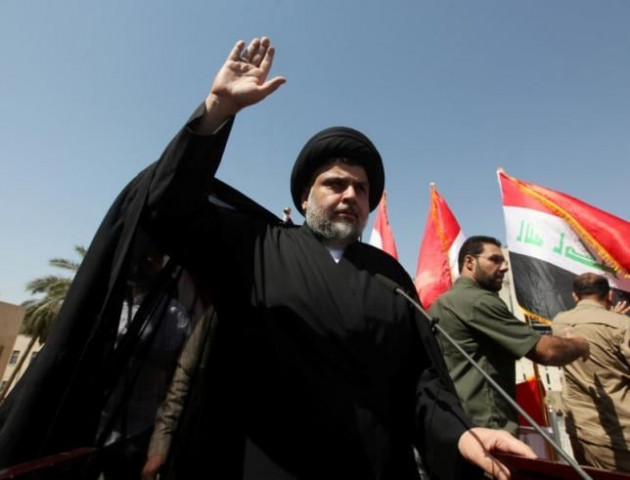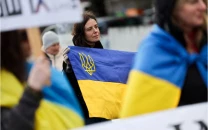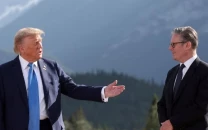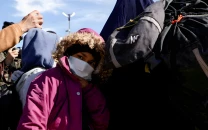Sadr becomes first Iraqi Shia leader to urge Assad to step down
Shia leader's call was wrapped in kind words about Assad and condemnation of US strikes carried out on Syrian airbase

Iraqi Shi'ite cleric Moqtada al-Sadr is seen during a protest against corruption at Tahrir Square in Baghdad, July 15, 2016. PHOTO: REUTERS
Sadr, who commands a large following among the urban poor of Baghdad and the southern cities, is the first Iraqi Shia political leader to urge Assad to step down.
But his call was wrapped in kind words about the Syrian president and condemnation of the US strikes carried out on a Syrian airbase on Friday, in retaliation for a chemical attack on civilians in a rebel-held area of Syria.
Trump says 'what Assad did is terrible,' 'something should happen'
Sadr said the US strikes would "drag the region to war" and could help "the expansion of Daesh," the militant Islamic State group, which controls parts of Iraq and Syria. Iraq's Shia-led governments have maintained good relations with the Syrian government throughout the six-year Syrian civil war.
Sadr is the only Iraqi Shia leader to keep some distance from Iran, a main backer of Assad along with Russia.
Don't shift blame for Syria gas attack, say senators to Trump
"I think it would be fair for President Bashar al-Assad to offer his resignation and step down in love for Syria, to spare it the woes of war and terrorism ...and take a historic, heroic decision before it is too late," Sadr said in a statement.
The Shia-led Iraqi government issued a statement on Friday that reflected the difficult balancing act it maintains between its alliance with the United States and with Shia Iran. It condemned the chemical attack, without naming Assad, calling instead for an international investigation to identify the perpetrator.
The statement also criticized "the hasty interventions" that followed the chemical attack, in an apparent reference to the US strikes. A US-led coalition has been providing air and ground support to Iraqi forces battling Islamic State, allowing them to recapture most of the cities they had overrun in 2014 in Sunni areas of northern and western Iraq.



















COMMENTS
Comments are moderated and generally will be posted if they are on-topic and not abusive.
For more information, please see our Comments FAQ